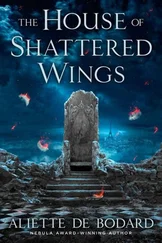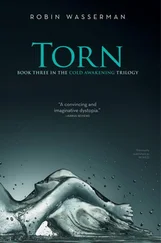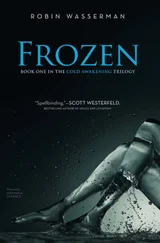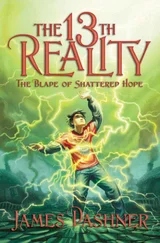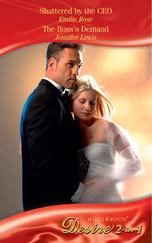Robin Wasserman
SHATTERED
For David Mayer, Ruth Wasserman, and Philip Wasserman, whom I never knew, but suspect I would have liked.
I see… a new and commanding breed rising up, fearless and fabulous, unsparing of blood and sparing of pity, inured to suffering the worst and to inflicting it and ready to stake all to attain their ends— a race that builds machines and trusts machines, to whom machines are not soulless iron, but engines of might which it controls with cold reason and hot blood.
—Ernst Jünger,
Copse 125
“There was no fear.”
When I was alive, I dreamed of flying.
Or maybe I should say: When I was alive, I dreamed.
Sometimes it was flying; more often it was falling. Or burning—trying to scream, trying to run, but frozen and silent and consumed by flames. I dreamed of being alone. Of my face melting or my teeth falling out.
I dreamed of Walker, his body tangled up in mine. Sometimes I dreamed I was Walker, that my hands were his hands, my fingers the ones massaging soft, smooth skin, getting caught in long strands of blond hair. Awake, people talk about becoming one—but in dreams it can really happen. His lips, my lips. Our lips. Our bodies. Our need.
In dreams you can become everything you’re not. You can reverse the most fundamental truths of your life. You can taste death, the ultimate opposite.
I can’t. Not anymore. Machines can’t die, can’t dream.
But we can fly.
From inside the plane, jumps don’t look like jumps. One second there’s a figure in the jump hatch, fingers gripping the edge, hair whipping in the wind, wingsuit rippling. Then the wind snatches another victim, an invisible hand yanking its prey out of the plane. Leaving nothing behind but an empty patch of murky gray sky.
Quinn and Ani jumped first, hand in hand. The first few times, I’d watched them fall, linked together and spiraling around an invisible axis, two whirling dots red against the snow.
But the novelty had worn off. These days I kept my seat.
Riley went next, and I was glad. Never speaking, never changing expression, eyes drilling through the floor. Until he thought I wasn’t looking, and then he’d fix me with that stony, unblinking stare. I wasn’t impressed: None of us blinked.
In another life I would have thought he was going for the dark, tortured thing, that whole moody, broody, aren’t-I-deep-and-soulful trip. I might even have fallen for it. But the new Lia, version 2.0, knew better. Riley could sulk and skulk all he wanted, but whatever his problem was, he could deal with it himself.
It was like Jude said: Orgs are weak and need each other. Mechs only need themselves.
And then Riley jumped and I was left alone with the mech I needed least. Jude stood at the hatch with his back to the clouds and his amber eyes on me. The sun glinted off the silvery whorls etched into his skin. I traced my fingers along the metallic streaks staining my face and neck.
I’d been convinced by Jude’s reasoning. We needed to puncture the illusion that we were human, that beneath the self-healing synflesh, hearts pumped, lungs breathed, organs throbbed and cleansed and churned.
I believed in the honesty. I wanted my outsides to match what lay within, the circuits and the energy converters and the twining networks of wires carrying artificial nerve impulses to an artificial brain. But that didn’t mean I wanted to look like him.
He reached out a hand, as he always did. His lips curled into a smirk, like he knew I would yet again say no—but that eventually I would say yes.
His lips moved, and—thanks to my latest upgrade—the word bubbled inside my head. “Coming?”
I waved him away. He shrugged and let himself drop into the sky.
I edged toward the hatch.
The first time I jumped, the fear almost drowned me. That was the point. To let go of the steel frame separating us from a five-mile drop, let go of the rigid, rational, controlled mode separating us from the blood-and-gut orgs. Absolute control yielded to absolute release. The artificial sensation of fear released artificial endorphins, stimulated artificial nerve endings, unleashed a flood of artificial panic. And in the rush of wind and speed and terror, it all felt real.
But the danger was an illusion, which meant the fear was a lie, and my body was beginning to figure out the truth.
Pausing in the threshold, I raised my arms, and the woven aeronylon of the wingsuit stretched beneath them, silvery filaments shimmering. Then I stepped into the empty.
Buffeted by the wind, I maneuvered myself flat, facedown, limbs outstretched. The suit’s webbed wings acted as an airfoil, harnessing the updraft to slow my free fall. Beneath me, snowcapped mountains drifted by at a leisurely hundred miles per hour; above me, nothing but soupy sky.
Here’s the thing about flying: It gets old.
I processed the sensations— processed not felt. The temperature, fifteen degrees below freezing, frosting the few patches of exposed artificial skin. The thunder of the wind. The silver sky, the blinding white below, the specks of red, violet, and black, circling and swooping in the distance.
The air had no taste, no smell. Orgs had five senses; mechs had three.
The suit’s instruments recorded a speed of 105 mph horizontal, 67 vertical, but this far from the ground, there was no fast and no slow. Despite the rushing wind, I felt like I was floating down a river, ambling and aimless.
There was no fear.
I let my body drift horizontal to the ground, and the wind sucked me into a flat spin, swinging me around at a dizzying speed. For orgs a flat spin was death. The body whirled like a centrifuge, a crushing 20g force sending rivers of blood gushing toward the head, the hands, the feet, starving the heart until it gave up beating. But for mechs, flat spins were just another perk, a way to turn the world into an incomprehensible smear. Without a puddle of fluid jostling in the inner ear, dizzying speed wasn’t even dizzying. For mechs, “dizzy” was just a meaningless expression. Like “thirsty,” or “nerve wracked.” Or “bored to death.”
I pulled abruptly out of the spin. Quinn and Ani swooped up, flanking me.
“Looking good. As always,”Quinn VM’d, her digitized voice clear, her meaning more so.
I shifted my body weight and let a gust of air blast me off to the right, buzzing past Quinn with enough force to spin her upside down. “Obviously I’m a natural.”Natural: the joke that never got old.
“Naturally annoying,”Quinn shot back, regaining her balance. She dipped down, dive-bombing Ani, who squealed as she wriggled away, flipping in midair. Quinn grabbed her wrist and pulled her into a vertical drop. “Catch us if you can!”she called back to me.
I could; I didn’t. I activated the lifting jets, let my legs drop, and began to climb, past fourteen thousand feet, past twenty thousand. Higher.
“Going somewhere?”There was something metallic about Jude’s voice, sharp and brittle as his features. It was strange the way the digitized voices took on some character of their owners.
“Away from you.”But even ten thousand feet below, he was in my head.
Читать дальше



